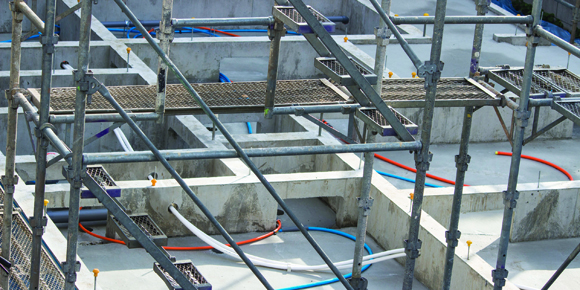A meeting of key building and developer interests was held earlier this week with Mayor Brian Bowman to discuss the issue of a growth fee. Beyond direct industry leaders, also in attendance were the Winnipeg Chamber of Commerce, Manitoba Chambers of Commerce and the Business Council of Manitoba.
The latter three organizations were in attendance, not as much to get into the ins and outs of growth fees and how they relate to and impact residential or non-residential development, but more to say that the current consultation process is not recognizing how critical it is to have the key builders and developers of our city at the table. The concern expressed was that any new fee, when implemented, will not be one that jeopardizes the city’s future growth and investment. The message from them and others at this meeting is that we need to be competitive within Canada and the capital region. Depending on what the city implements, it can negatively impact competitiveness and ability to attract new investment.
When WinnipegREALTORS® had the opportunity to speak, the focus was on the potential impact of applying growth fees on new commercial developments. Wayne Johnson, a former commercial division chair and author of the Johnson Report (a thorough and comprehensive review of Winnipeg’s commercial real estate market), gave everyone, including the mayor, a précis of the local office, industrial and retail markets. It was not all a bed of roses. The office and industrial market remain challenged and the office market is fragile. By far, retail is the brightest market, although not without its own challenges, including last year’s loss of Target
In addition to Johnson’s dose of economic reality on the local commercial real estate market, WinnipegREALTORS® Commercial Division chair Stephen Sherlock weighed in with his own perspective, which follows:
“There are some challenges to new development in our great city and the recent talks about a new growth fee-type tax is a huge detriment to further development in Winnipeg. Our construction costs are higher than other markets. Concrete in particular is a much higher cost here than in other markets. Our construction season is also shorter than many other markets due to our climate. This means developers have to pay more here to build something and do not have a lot of time to do it.
“We have a high land transfer tax, which is a provincial item but is still an important item on a developer’s spreadsheet. It can also take quite a while — six to eight weeks — to obtain a building permit. Some of these items are out of anyone’s control, and I understand the city is working towards streamlining the building permit process.
“Every market has its challenges and these are some of ours. Many developers see past these challenges as, in many cases, the benefits definitely outweigh the challenges. Still our city does not see a lot of new development. In many cases, the rental rates that are needed for development cash flows can not be achieved, so the projects do not get off the ground.
“When forward thinking developers move ahead anyway, it is a great moral boost for the city of Winnipeg. True North Square is an excellent example of this. The development of a new, state-of-the-art modern office development creates positive buzz and gives our downtown area something to be proud of. It not only creates amazing new product on our market, but helps put us more on the map.
“In new suburban development, the standard practice is that the developer pays the upfront costs for all of the infrastructure required for said development. They pay for the roads, the street lights, the sewer and water, etc., and the newly built building(s) generate property tax for the area for the ongoing maintenance of these items. If the city imposes a new extremely large line item on a developer’s spreadsheet, in my opinion, this will take the development of Winnipeg from its current pace to a standstill. We need to promote growth in this city not stagnation.
“It also needs to be taken into consideration that, if the development of this city slows significantly due to this new proposed tax, it is not only the developers that will take a hit. It will mean a loss of jobs in related industries: contractors; tradespeople, such as electricians, carpenters, painters, masonry and concrete workers, steel workers, plumbers, HVAC contractors; and architects, designers, construction material suppliers, lawyers, agents, consultants, engineers, logistics companies, just to name a few. And the above list just scratches the surface of those who will be effected.
“I trust the city will find a better, more well thought out way to solve their problems.”
Full credit to Mayor Bowman for listening to industry concerns over bringing in a growth fee on residential and commercial real estate. There will at least be a step back from what until now has been a hasty process without consultation with the key builders and developers of our city. The mayor said he would keep the lines of communication open, while industry leaders indicated we need to work together to get it right.



